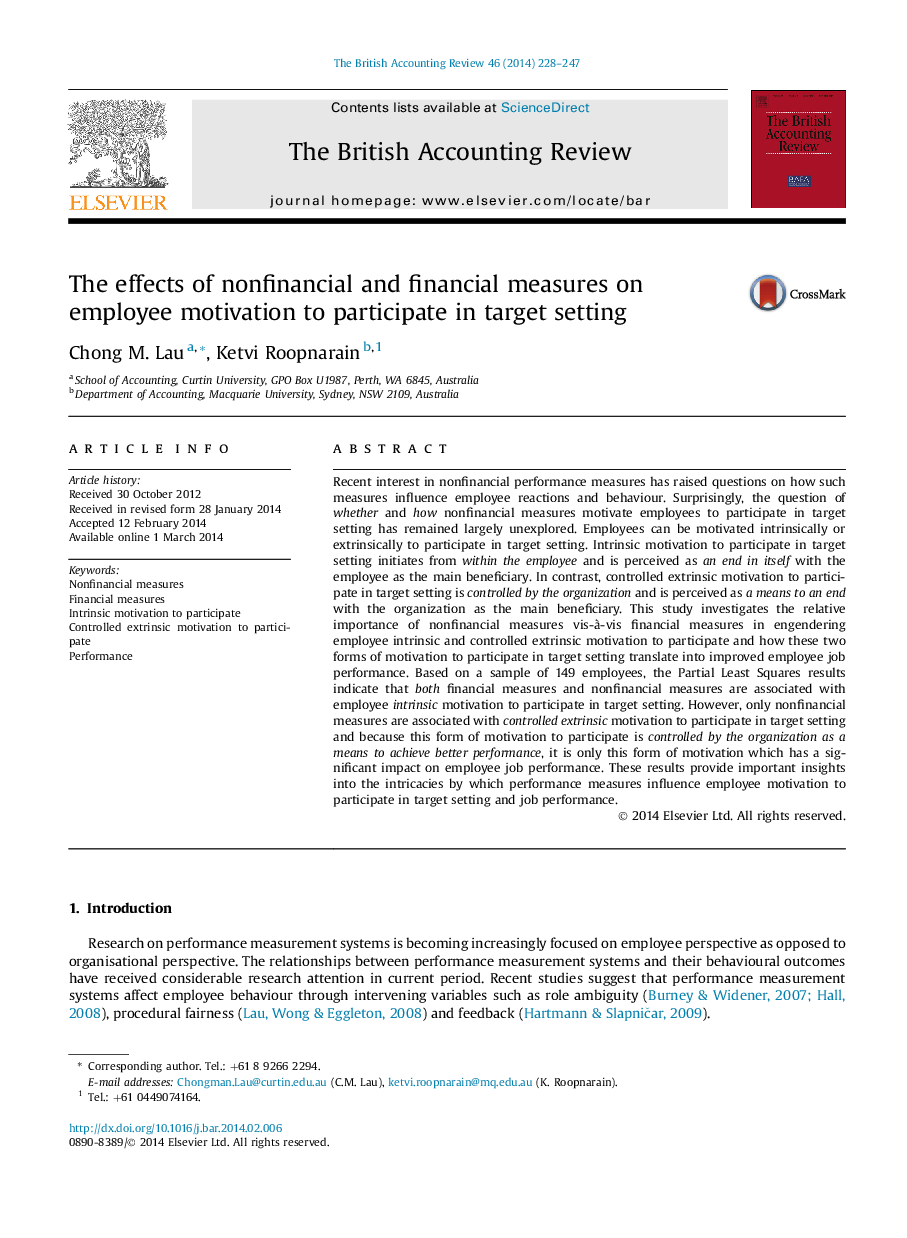| Article ID | Journal | Published Year | Pages | File Type |
|---|---|---|---|---|
| 1003957 | The British Accounting Review | 2014 | 20 Pages |
Recent interest in nonfinancial performance measures has raised questions on how such measures influence employee reactions and behaviour. Surprisingly, the question of whether and how nonfinancial measures motivate employees to participate in target setting has remained largely unexplored. Employees can be motivated intrinsically or extrinsically to participate in target setting. Intrinsic motivation to participate in target setting initiates from within the employee and is perceived as an end in itself with the employee as the main beneficiary. In contrast, controlled extrinsic motivation to participate in target setting is controlled by the organization and is perceived as a means to an end with the organization as the main beneficiary. This study investigates the relative importance of nonfinancial measures vis-à-vis financial measures in engendering employee intrinsic and controlled extrinsic motivation to participate and how these two forms of motivation to participate in target setting translate into improved employee job performance. Based on a sample of 149 employees, the Partial Least Squares results indicate that both financial measures and nonfinancial measures are associated with employee intrinsic motivation to participate in target setting. However, only nonfinancial measures are associated with controlled extrinsic motivation to participate in target setting and because this form of motivation to participate is controlled by the organization as a means to achieve better performance, it is only this form of motivation which has a significant impact on employee job performance. These results provide important insights into the intricacies by which performance measures influence employee motivation to participate in target setting and job performance.
